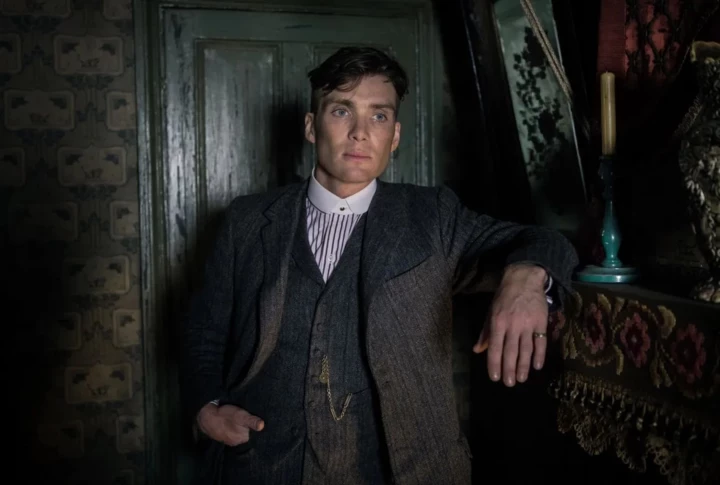
Save this storySave this storySave this storySave this story
The sandwiches clinch it. In Michael Showalter’s effervescent new movie, “The Idea of You,” Hayes Campbell, a twenty-four-year-old global pop star, is obviously attracted to Solène Marchand, a divorced, forty-year-old mom who lives in Los Angeles. He shows up at her gallery and buys every single piece of art on display. He accompanies her to a friend’s warehouse in the middle of nowhere and asks her probing questions about her college major. But it’s not until the couple heads back to Solène’s tasteful home, in part to avoid the paparazzi, that their romance passes the point of no return. Solène flexes her maternal superpowers, fixing herself and Hayes sandwiches that he declares “legendary.” A few more bites, a few more beats of mutually vulnerable conversation, and the deal is sealed: moments later, Hayes and Solène are frantically devouring each other against the side of her upright piano.
The latest season of “True Detective” asked, What if moms made the best detectives? The latest season of “Fargo” asked, What if moms made the best MacGyvers? Some trendy contemporary novels ask, What if moms made the best artists? Beyoncé has lately asked, What if “mom” were the best personal brand for a culture-defining creative genius? Now romantic comedies are asking, What if moms were hot?
This is the level of radicalism that “The Idea of You” offers. Which is not to discount the film’s delights or its good intentions but simply to advise viewers not to seek it out for its feats of political daring. Its virtues lie elsewhere. The movie breathes life into the genre of the romantic comedy, which has been languishing recently, by drawing on fan culture, which is very much alive. It is based on a novel by the first-time author Robinne Lee, who has named Harry Styles, Prince Harry, and Eddie Redmayne as among the inspirations for the character of Hayes. As an indication of the stigma surrounding fan fiction, Lee has also said that applying that label to her book “is both reductive and dismissive”—a way of demeaning women’s art. But the story that Lee wrote and that Showalter adapted around is fanfic in the classic sense: it spins a wish-fulfillment fantasy around a thinly veiled celebrity (or chimerical celebrity hybrid). Showalter’s version is also a classic rom-com, with all the technical tricks and delectable tropes that genre implies.
Solène Marchand (Anne Hathaway) is not like other moms. For one thing, she looks like Anne Hathaway: dewy, graceful, with shining swaths of hair fountaining down her shoulders and back. She wears exquisite clothes. The owner of an art gallery in Silver Lake, she’s professionally defined by her good taste and social values. (“I really admire you. You’ve built a community around art and inclusiveness,” one suitor says, before nervously inviting Solène to join him for “a meal of food.”) Solène has a funny, smart, supportive best friend named Tracy (Annie Mumolo). She has a close, loving relationship with her sixteen-year-old daughter, Izzy (a bubbly Ella Rubin who does a great job fulfilling her character’s function of reflecting well on Solène). At the same time, she’s winsomely relatable and vulnerable: a people pleaser who rarely prioritizes herself. She is waiting for someone to sweep her off her feet, but she doesn’t know it yet. Essentially, Solène is a lightly mom-ified rom-com protagonist, someone who can be counted on to worry adorably about whether her daughter has enough sweaters but who also spends a weirdly large amount of the movie primping in front of the mirror.
When Solène’s dirtbag ex, Daniel (Reid Scott), bails on a trip to Coachella with Izzy and her friends, Solène agrees to take his place. Cue her meet-cute with Hayes (Nicholas Galitzine), a British heartthrob and member of the world-conquering boy band August Moon, which is headlining the festival. After mistaking Hayes’s private trailer for the bathroom, Solène proceeds not to recognize the star and then to admit that her daughter has outgrown his music. Naturally, he’s entranced, and before long he’s slyly dedicating songs to her and whisking her away to villas in the South of France.
“The Idea of You” is partially about the intense, vicious, and often sexist scrutiny that celebrities and public figures withstand, not only at the hands of the traditional press but also because of social media. Photos of Hayes and Solène eventually find their way online, setting off a digital feeding frenzy and putting Solène in the crosshairs of the “Moonheads.” She endures a stream of misogynistic abuse, with headlines screaming that she’s a “cougar” and “Yoko Ono 2.0,” and anonymous trolls posting about how sleazy she is.
Hathaway’s casting feels like a bit of meta-commentary on the part of the filmmakers. In the early twenty-tens, she too was ripped apart on the Internet, accused of embodying the overeager theatre kid after she co-hosted the 2011 Academy Awards with a zoned-out James Franco. Her classical Hollywood looks caused Hathahaters to mock her as Little Miss Perfect, and it’s telling that she has already drawn criticism for being “way too hot” for the role of Solène. The apparent efforts of the movie’s marketing team to pose her as a normie are equally telling. On their promotional tour, Hathaway and Galitzine have come off as sweetly relatable. After a bit of pre-interview footage caught them cheering for the English football team Arsenal, the footballer Leandro Trossard surprised them with a video on the “Today” show, momentarily transforming them into breathless groupies. Hathaway brings both softness and steeliness to Solène, the latest heroine to make the leap from fanfic (or trade romance novels that grew out of fanfic) to streaming. Over-glamorousness aside, she’s been rightly lauded for her performance, and I’ve entertained my own wish-fulfillment fantasy of her kicking back on a sofa in Southern California to bask in the empathy her gifts have generated, not to mention the rage at strangers’ entitlement.
To be fair, rom-coms encourage such identification. The Manichaean way in which they establish heroes and villains brings to mind that one symptom of narcissism is supposedly dividing the world into idealized angels and evil monsters. Take Hayes. In addition to being ludicrously rich and handsome and desired by most of the globe, he’s sensitive, charming, generous—a “talented, kind feminist,” as Izzy puts it—and smitten with Solène. He will not be dissuaded from his goal of “trying to get to know [her] better,” even when she ignores his texts and disses his music. In fact, Solène’s disinterest excites Hayes—he’s that confident (but also vulnerable, because he cares a lot what she thinks, even if, as he repeatedly tells Solène, he doesn’t care what people think).
“People,” or “they,” or—let’s just say it—fans are the movie’s true villains. (Solène’s hypocritical ex-husband, a close second, mostly serves as a mouthpiece for the public.) They are jealous of Solène and don’t think she deserves Hayes. They think she’s gross for dating a younger man, even though, as Hayes asks out, “if the roles were reversed, do you think anyone else would give a shit?” They “hate happy women,” as Tracy, who delivers some of the film’s best lines, says drily. And they have a sense of ownership over Hayes because he gives them so much joy, and because he somehow seems to speak directly and intimately to every single one of them.
When you play a piece of piano music by heart, thinking too hard about what your fingers are doing might cause you to mess up. The same goes for watching rom-coms. The activity has a particular purpose—transforming shame and insecurity into wish fulfillment—but, if you notice it happening, the magic fails.
Put another way, a rom-com is a machine that performs an operation. One measure of its quality is its sophistication—how well it disguises the fact that it is performing the particular operation that it was designed to perform. In the case of “The Idea of You,” there are arguments—about age-gap relationships and the double standards attached to them; what it means to be famous; what it means to be a fan; and how all this intersects with social media—that elevate, complicate, and obscure the basic formula. But although these departures and subversions are where criticism gets interesting, they don’t account for much of the appeal of the work itself. There’s very little room within the rom-com template for creators to make a point that isn’t obvious. (For instance, “The Idea of You” ’s opinion on double standards is that they are bad; its opinion on being famous is that it’s hard; and its opinion on haters is that they are jerks.) At their core, most rom-coms aren’t really about ideas—they’re about feelings.
Affirmation and shame are the film’s two main emotional poles. Affirmation is what Hayes gives Solène and shame is the W.M.D. wielded by fans against her. Shame also haunts Solène’s backstory: early on, we learn that her ex, Daniel, cheated on her with a young co-worker, and that she found out in humiliating fashion. “You know that feeling when you walk into a room and you know everybody was just talking about you?” she asks Hayes. She feels unworthy: “I can’t do this . . . because you’re you, and I’m me, and we just don’t fit.” Elsewhere, her voice trembles, because she is “ashamed.”
Hayes also seeks validation and the release from shame. “I think that’s my greatest fear in life, that I’m a joke,” he tells Solène. He recounts his euphoria at being invited to the house of the lead singer of his favorite band, only to realize that the singer’s ten-year-old daughter was having a birthday party and wanted a picture with him. Crucially, and as with Daniel’s adultery, we don’t see this happening in the present tense of the movie; what matters is not the event but the character’s painful and self-flagellating interpretation of it. At one point, Hayes asks Solène, “Are you embarrassed to be jet-setting around the world with a twenty-four-year-old pop star?” Later, during their first fight, he says, “You’re ashamed of me, is that it?”
The idea that Solène’s relationship with Hayes would be a source of shame for either of them—that there’s mortification in being either an international pop star or the woman who bewitches an international pop star—is one of the movie’s necessary fairy tales. As viewers, our job is to suspend our disbelief long enough to feel sorry for the characters who are experiencing shame. But it’s also crucial that their shame seem ridiculous once we think about it for more than two seconds; otherwise, the exorcism of our own shame isn’t guaranteed to succeed. To take another example, viewers understand and accept that Solène feels disgraced by the way that Daniel jilted her. At the same time, we know not to assign this flagrantly caddish character’s judgments any weight. Instead, we’re supposed to pay attention to Hayes, with his sterling credentials and seemingly unshakable worship of Solène from Day One. Of course, Solène takes a while to see that Hayes is the more reliable narrator: her arc consists precisely of coming around to his point of view, and we accompany her on that journey. Through her lover, the rom-com heroine claims herself as an empowered individual deserving of love. Viewers vicariously do the same.
If a romantic comedy is a machine that converts shame into self-affirmation, what kind of shame does “The Idea of You” want to expiate? The obvious answer is the shame of being an older woman and a mom. The film seems to engage and then relieve the shame of middle-aged maternity by crafting an insanely aspirational middle-aged mother for viewers to glom on to. But Solène’s mom-ness remains so gestural and impressionistic for most of the movie that this answer feels unsatisfying. Showalter conveys an idea of motherhood but not the realized and embodied thing. A truer statement—and the characteristic that distinguishes “The Idea of You” as a rom-com—is that the film, with its Wattpad and Archive of Our Own lineage, wishes to expiate the shame of being a fan.
Solène can only be Hayes’s lover because she is not his fan. Whereas fans are swept up by the idea of Hayes, she sees the authentic person. Whereas they selfishly want to consume his glow, she wants to conserve and sustain him and to feed him sandwiches. Caring about Hayes means not caring about the status that dating him might confer. A few minutes into the meet-cute in the trailer, Hayes’s manager pops open the door to announce a new partnership with Tag Heuer, and to make sure that Hayes is ready to hit the V.I.P. tent before performing on Coachella’s main stage. This barrage of signifiers falls apart on contact with Solène’s amused neutrality. “Do you need someone to help dress you?” she asks Hayes innocently.
Solène is a mom—defined as the opposite of a fan, who is needy and juvenile, too absorbed in her own lack to genuinely love someone else. But she is also presented as an object of identification for tween-age fans. There is something unformed about her. She speaks in the same Zoomer cadences as her daughter. She sings in the car. She takes goofy selfies. An obedient overachiever who started a family in her early twenties, she is implied to have missed out on the ridiculous, reckless adventure of romantic love. After Hayes awakens Solène to the possibilities of eros, the movie leans into her adolescent qualities. She makes impulsive, lightly hedonistic decisions, such as wearing a see-through top to an assignation at a New York hotel and ordering a postcoital cookie plate.
This regression destabilizes the dichotomy between mom and fan. When Solène succumbs to Hayes’s charms, we enjoy the fantasy of being plucked out of the crowd, being loved infinitely by an infinitely powerful and desirable figure—being, basically, a baby in the arms of a parent. At the same time, as Solène comes closer to attaining infantile paradise, the movie purges our anxiety and shame by insisting on her mom-itude. When, in the final act, Solène’s love for Hayes is pitted against her love for her daughter, the choice she makes is a foregone conclusion. Because we are watching a rom-com, though, and not an actual celebration of maturity and perspective, Solène gets the guy as a prize for being willing to give up the guy. She has her cake and eats it, too. A fan’s obsession is terrifying: she is nothing but desires everything. It’s far better to be everything and to desire nothing, like a mother through the eyes of her baby. Although “The Idea of You” deserves props for portraying middle-aged caretakers as sexy, this reframing is a happy side effect of its main mission: to dispel the shame of being a fan through the fantasy of being a mom. ♦
Sourse: newyorker.com







